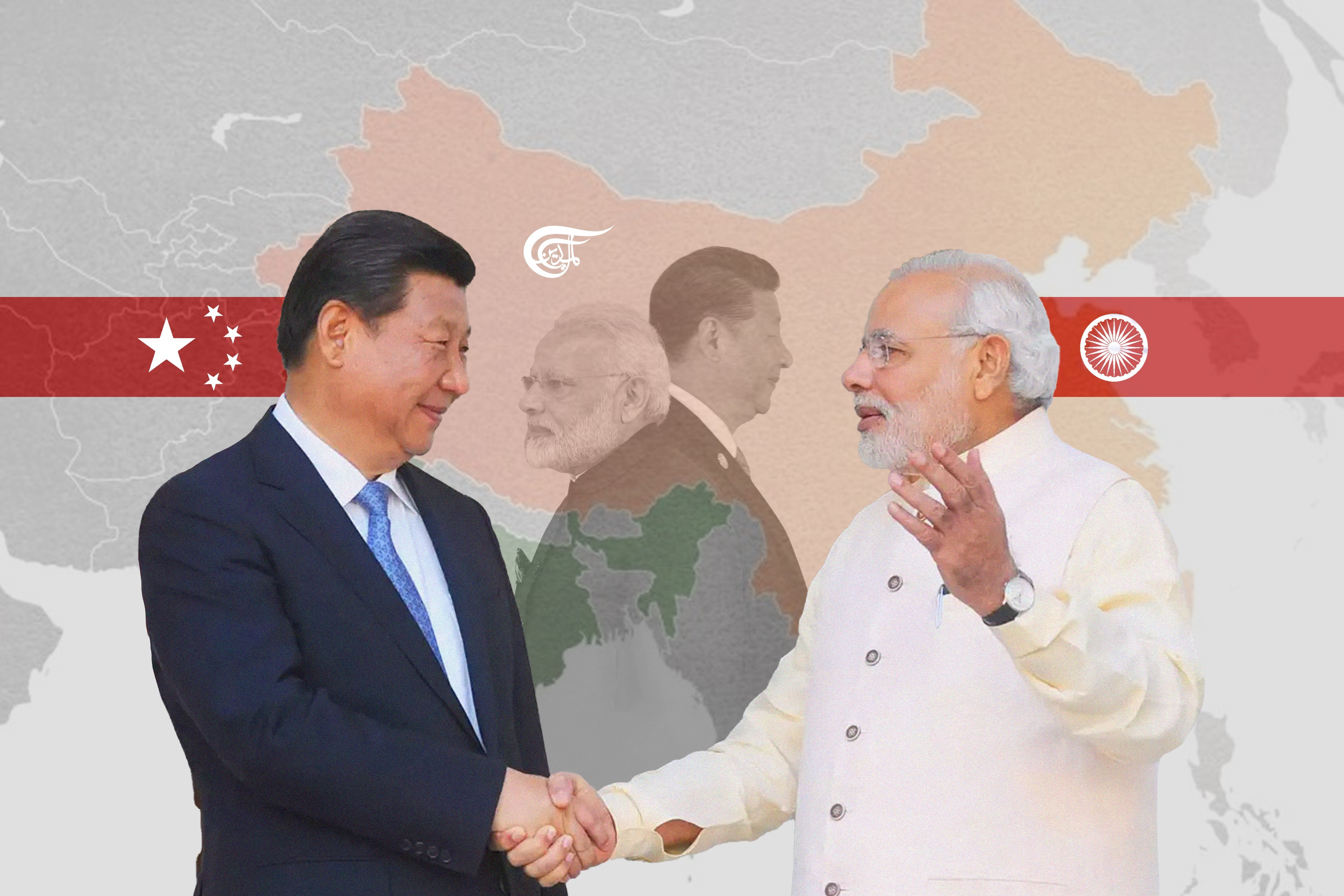Will frozen Indian-China relations be melting with China's Foreign Minister’s New Delhi Visit?
Being members of multilateral institutions such as the United Nations, G20, BRICS, and SCO, it is necessary for the two important neighbours in the Asian region to bridge the yawning gap in the derailed India-China ties.
-

Considering the strength and development of India-China bilateral ties, as well as the two countries’ respective roles in international issues, both India and China should increase their economic, political, and strategic cooperation.
Relations between India and China have witnessed complications in recent years with the 2020 Galwan Valley clash between the two countries’ border troops at the Line of Actual Control (LAC) in the western section of the China-India border. Since then, things have become more complicated and sensitive as both sides have hardened their suspicions about the other’s foreign policy, while casting blame on each other for trespassing into the poorly demarcated India-China border. Needless to say, the protracted border row does not serve the common interests of both countries.
In plain speak, right after the Donglang standoff in 2017 and the Galwan Valley incident in 2020, Indian policy towards China entered a dangerous phase when Prime Minister Narendra Modi's government adopted hawkish measures, such as imposing a range of economic measures against Chinese firms and banning a set of mobile apps linked to China. The Galwan Valley clash forced the Modi government to accelerate its strategic tilt toward the United States in the security domain in order to position “New India” for future great power status.
Many Chinese strategic experts see the Modi government’s Neighborhood First policy and US-India cooperation in the Indo-Pacific region in a negative light. China has been critical of India’s sedulous courtship of the United States and active participation in the Quad Security Dialogue grouping ever since it came into being, accusing the US of using other countries to provoke China in the Indo-Pacific region.
Against the backdrop of the dwindling Sino-Indian relationship, at the invitation of Indian External Affairs Minister S. Jaishankar, China's new Foreign Minister Qin Gang participated in the G20 Foreign Ministers' Meeting on March 2 in New Delhi under India’s presidency. This was the second G20 ministerial meeting, followed by the G20 Finance Ministers and Central Bank Governors (FMCBG) meetings, held in Bengaluru, Karnataka on 24-25 February.
After taking office as China’s new Foreign Minister on December 30, 2022, Qin’s one-day India visit made it the first such high-level visit of a Chinese leader to India since March 2022. The Chinese Foreign Minister’s visit took place on the heels of the 26th meeting of the Working Mechanism for Consultation and Coordination on India-China Border Affairs (WMCC) in Beijing on February 22, 2023. The WMCC meeting marked the first such talks held in person since July 2019. Experts from both countries see the revival of the in-person meetings between India and China as a new beginning and an opportunity to reduce the trust deficit between the two nations.
Indian and Chinese experts believe that Qin Gang’s visit gave China and India an opportunity to open up new possibilities to revive Sino-India relations leaving aside the 2020 LAC incident. 2022 witnessed some stabilizing factors in Sino-Indian engagements that signaled that both sides are eager to try to iron out their differences amid a complicated border issue.
China’s willingness to improve the fragility of India-China relations in a turbulent world was evidenced by the surprise visit to India of then-Chinese Foreign Minister Wang Yi (now Director of the Office of the Foreign Affairs Commission of the Communist Party of China Central Committee) on March 25, 2022.
During his talks with his Indian counterpart S. Jaishankar in New Delhi, Wang Yi noted that both China and India should focus on the larger picture of bilateral ties and adhere to the strategic judgment made by the leaders of the two countries. He further stated that "China and India should not be a threat to each other, but an opportunity for each other's development." Wang Yi welcomed the new Indian Ambassador to China, Pradeep Kumar Rawat, on June 22, 2022 by stressing that China and India should meet each other halfway to steer bilateral relations back to the track of stable and sound development at an early date.
On the other hand, Prime Minister Modi attended the virtual 14th BRICS Summit in Beijing via video link on June 23, 2022, hosted by Chinese President Xi Jinping. Prime Minister Modi and President Xi publicly exchanged greetings on the sidelines of the G20 Summit in Bali, Indonesia on November 15, 2022, the first meeting since the 2020 border standoff. This strongly signaled that India’s highest level is willing to warm up the coldness of India-China relations.
On December 20, 2022, China and India held the 17th round Corps Commander Level Meeting at the Chushul-Moldo border meeting point on the Chinese side, and both sides “agreed to maintain the security and stability on the ground in the Western Sector”, which would create conditions for the restoration of normalcy in bilateral relations. Indian and Chinese soldiers exchanged greetings and sweets to ring in the New Year-2023.
It’s worth noting that after assuming charge as China’s new Foreign Minister, Qin Gang strongly signaled that China’s highest level is willing to reset Indian-Chinese relations. It should be recalled here that Qin, in an opinion piece entitled “How China Sees the World” published in the US magazine, The National Interest, wrote, " As to the border issues between China and India, the status quo is that both sides are willing to ease the situation and jointly protect peace along their borders”.
As such, Qin’s visit was of profound significance, as India is hosting the 23rd Annual SCO Leaders' Summit in July and the G20 Leaders' Summit on September 9-10 in New Delhi. India sincerely expects President Xi Jinping’s attendance at the two key summits under its presidency.
According to media reports, the border issues and the outcome of talks at diplomatic and military levels to resolve the border crisis were the top talking points between the two foreign ministers on the sidelines of the G20 meeting. During their first in-person meeting, the two ministers emphasized the need for a robust India-China relationship to tackle the formidable challenges the world is facing now.
It is learnt that the two foreign ministers discussed a host of geopolitical tensions such as economic recovery after the COVID-19 pandemic, energy supplies, food prices, and the one-year-old Russia and Ukraine military conflict that has literally divided the world into different blocs and put rifts in international relations.
During their meeting, Qin called on India to look at relations “in the context of once-in-a-century changes in the world” and to put the border issue “in the proper place”. While conveying India's position on the border tension with China on the LAC, it's really encouraging to hear that the Indian Foreign Minister assured his Chinese counterpart that “the Indian side agrees that bilateral relations should be viewed and improved from a historical and strategic perspective, and more cooperation platforms should be built to push India-China relations forward along the right track.”
Needless to say, the face-to-face meeting of the two foreign ministers demonstrated that the two countries are ready to make some course corrections in their approach to each other as bilateral cooperation – particularly in the areas of trade and economic partnership and people-to-people relations – has suffered to a large degree as a result of the bloody Galwan Valley incident.
But more importantly, the Chinese Foreign Minister's visit can be seen as a prelude to the SCO and G20 Leaders' Summit. If any bilateral meeting between President Xi and Prime Minister Modi does take place on the sidelines of the SCO Summit and the G20 Summit, surely these meetings will provide top leaders of both neighboring countries with opportunities to pave the way for the much-needed normalization of bilateral relations. The future of Sino-India relations can only be shaped by dialogue and engagements through economic and cultural cooperation, rather than just confining it to border negotiations.
Being members of multilateral institutions such as the United Nations, G20, BRICS, and SCO, it is necessary for the two important neighbours in the Asian region to bridge the yawning gap in the derailed India-China ties. Both sides need a realization that border confrontation does not serve the common interests of the two countries.
Considering the strength and development of India-China bilateral ties, as well as the two countries’ respective roles in international issues, both India and China should increase their economic, political, and strategic cooperation as well as people-to-people exchange, which are all equally important for the region and for global peace, stability, and prosperity.

 Rabi Sankar Bosu
Rabi Sankar Bosu
 8 Min Read
8 Min Read











